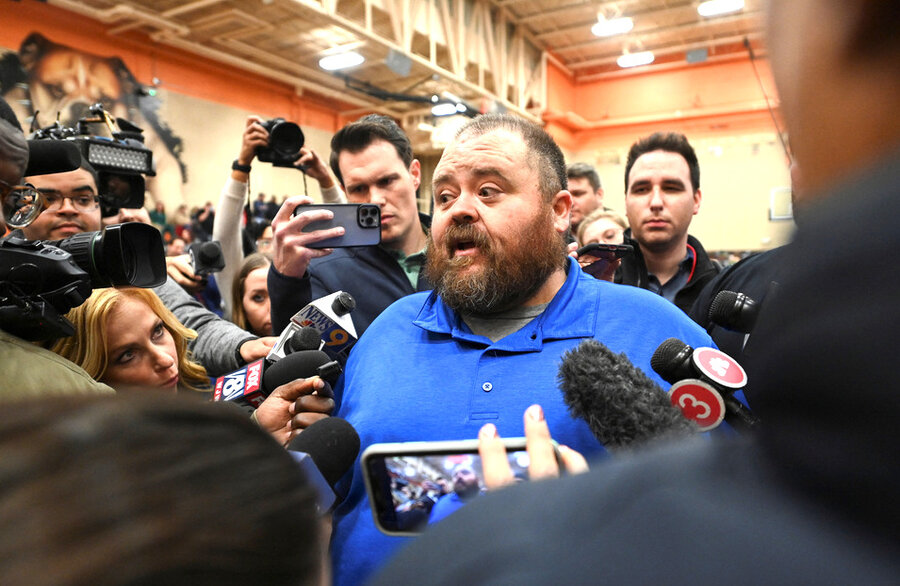Trust as a locomotive for rail safety
Loading...
When a massive toxic spill happens, like the one from a train derailment in Ohio on Feb. 3, the first casualty is often faith in government officials responsible for public safety. In the community of East Palestine where the tragedy occurred, the town mayor displayed a certain humility about his ability to deal with the disaster.
“I need help,” Trent Conaway told residents in a town hall meeting Wednesday. “I’m not ready for this. But I’m not leaving. I’m not going anywhere.”
His honesty and accountability might serve as a salve for anger over the spill, especially after the mixed or evasive responses from federal and state officials as well as the railroad company, Norfolk Southern, about both the dangers and the cleanup needed.
Speaking in East Palestine yesterday, Environmental Protection Agency Administrator Michael Regan acknowledged that the derailment “has understandably shaken this community to its core. ... We know that there is a lack of trust.” The railroad company, meanwhile, has set up emergency funds totaling more than $2 million to help residents and business owners recover.
The train that derailed was 150 cars long with a three-person crew. The National Transportation Safety Board (NTSB) said roughly 50 cars jumped the tracks, 11 of them filled with various toxic chemicals. The wreckage left emergency responders and local officials with an untenable choice: wait for the chemical reactions triggered by the disaster to result in an explosion or burn off the substances in a controlled release. They chose the latter.
Such disasters raise questions faster than explanations can be determined or solutions put in motion. How far did the spilled chemicals spread, and how long will it take for them to break down, if at all? Did the Biden administration subordinate safety concerns in its efforts last year to avert a strike by rail workers – whose union raised such concerns?
It may take weeks for the NTSB to determine what caused the derailment. (Another Norfolk Southern train carrying chemicals skipped its tracks yesterday near Detroit.) Results from more thorough tests of soil and water are at least days away. New regulatory reforms will require long political battles.
Better understood is how environmental and infrastructure crises erode public trust. A 2014 decision in Flint, Michigan, to switch the city’s water source – the new water had contaminates that leached lead from the pipes – has left residents even today with suspicions about both the water quality and officials. “The pain from the Flint water crisis is with me every day,” Dayne Walling, who as Flint’s mayor pressed the button that switched the water sources, said years later.
Human-caused catastrophes are like pin drops, marking places such as Chernobyl and Flint as cautionary tales. In time, East Palestine may be known for something else – how trust can be rebuilt if enough officials own up to what they know and what can be done for public safety.





